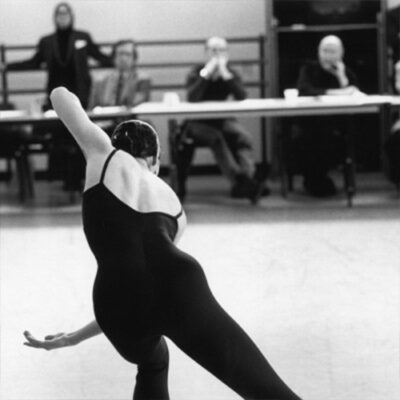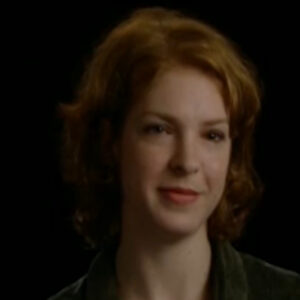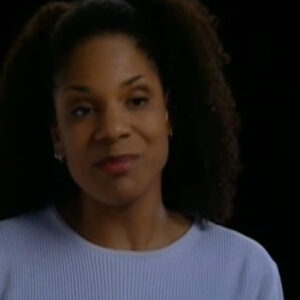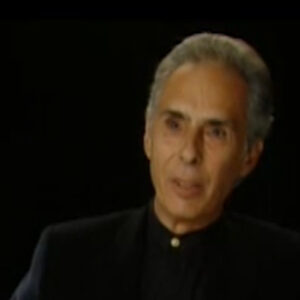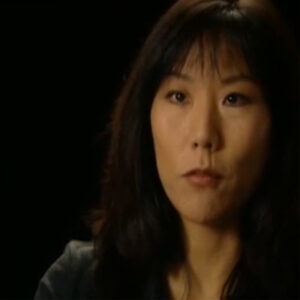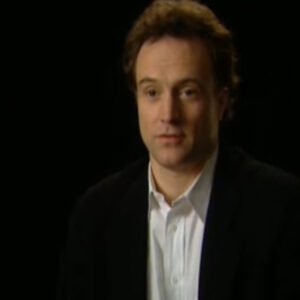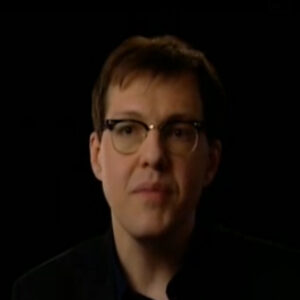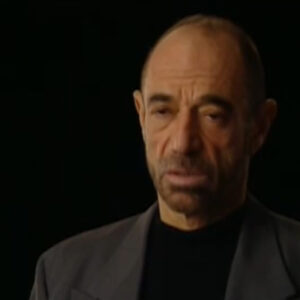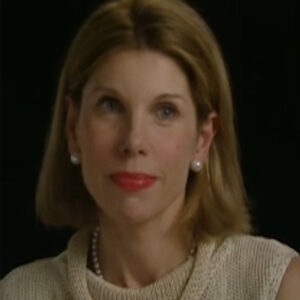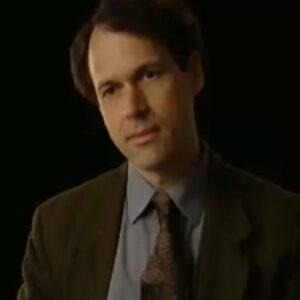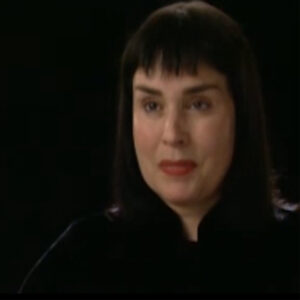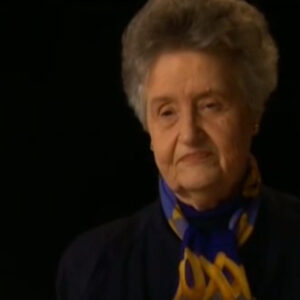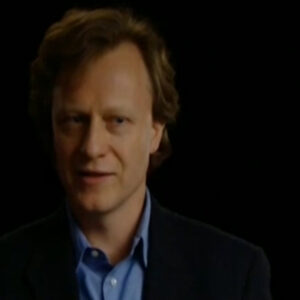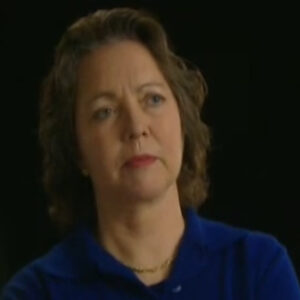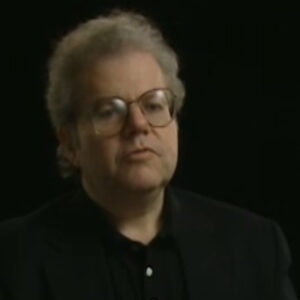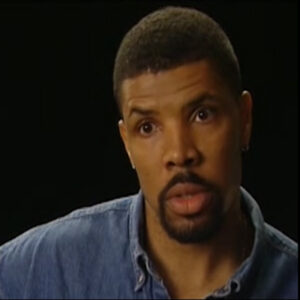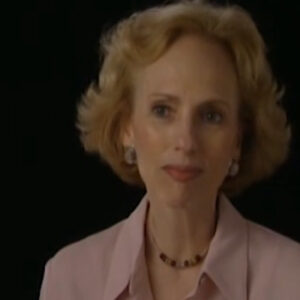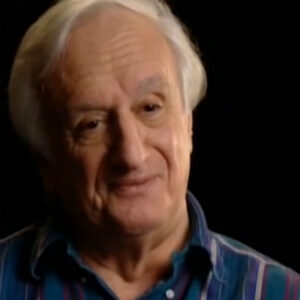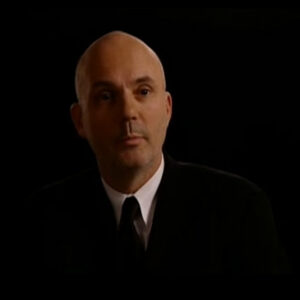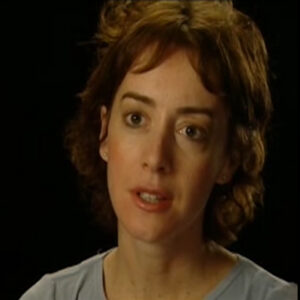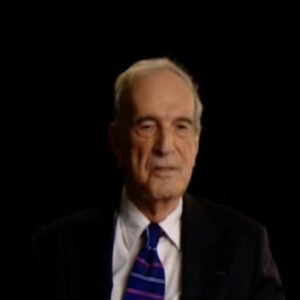Speaker Why do you think you wanted to? What made you become an actor? I don’t know, just. I mean.
Speaker First, it’s a fun thing. I did some acting when I was in the least in London and I enjoyed Drolet so much.
Speaker Uh.
Speaker When Michelle Santini came to London with the company they cast. They did Cocteau’s and Ticona at the French Institute, and they called up and said, would I come and do the messenger? And I said, yes. And. Let’s rehearse all night.
Speaker He said, I think you have some talent, you know. Why don’t you become an actor? We’re going to start a school. And that’s how I started.
Speaker And once I’ve been in one school, London studio, I couldn’t let up on it.
Speaker Became my my ambition to go on acting.
Speaker Tell me a little bit about that, Michel, because he’s such a figure in the world of theater.
Speaker Tell me a little bit about what he was like and why you think. You know, I know that Juilliard, you know, came after him quite, quite strongly when they started the school.
Speaker Yeah. He always he was always interested in teaching. And then in backing up the preparation to become an actor by having one I liked, the acting company gives gives that kind of exist. Welfare, the best of students and Juilliard get jobs. The acting company. And he always had this combination of. Being a theater person and being also a teaching person.
Speaker Which, in fact. Sorry to disturb the record. OK.
Speaker Sort of having you tell me a little bit about about Michelle and also if you used his name so that we know that he is who you’re talking about.
Speaker But he was where? Well, Michelle’s great talent that brought him to Juilliard.
Speaker What do you think? Well, one and one of his great qualities was that he knew how to choose people. You know, surrounded by very good people. When he started the school in London and and her husband was sure that he was talking to the right sort of man. When you asked him to. Provide a plan for them for the Juilliard School. And by then, Michelle had had experience of teaching and getting a teaching staff together. So that right from the beginning of the Juilliard project to right sort of people brought together. And that was very much because of Michelle’s talent with being able to surround himself with the right people.
Speaker And what was John Houseman like?
Speaker He was fascinating. Very simple and straightforward and at the same time, very clever and very, very good diplomat.
Speaker Fascinating man in his in his book. He seems to describe lots of lots of conflict about. About the beginning of the program. What what did Michelle tell you about. About the program when he was going over? What what was it? What were his hopes?
Speaker Well, when I was first connected with warehouseman, he came over to France and to talk to Michelle about his plans for Julian and Housman came to view some ball quite close to here.
Speaker To see where I was acting with the students in a in a fellow play. And he wanted me to come to New York to direct the school and when it would be promoted. But I was just beginning to feel my real strength here. And I stayed. But.
Speaker Mark, your question at the beginning.
Speaker I think I was just asking you, what was husband’s what the hopes were for the school in terms of the kind of training that they were going to do there.
Speaker And it was a very it was he was really looking to people who had been working in Europe, it seems.
Speaker Yes. Yes, I think that’s true. He came and saw sort of school and work that we took to a science symposium with the International Centre Institute did in Stockholm. And he was very impressed by our students. And he he seemed to have total confidence in Michel’s use. Linda detailed the deve difficult detail of self selecting the right people. Maybe it brought a lot of conflicts, which you probably found in her husband’s book, but they soon got past that. And then the school started off to a very good start.
Speaker I came in and started teaching in 71.
Speaker And.
Speaker Most people were beginning to retire that age. When I started my American career for the next 26 years, I came every every year, twice to two to Juilliard and once to Chautauqua. And wants to Montreal, which is also a school that was started by Michelle.
Speaker And what you had a long, quite a long history then with Michael Kahn, who’s also still running the school. How did you do? How how did the school sort of change it in its vision?
Speaker From when? From those early, early years over the course?
Speaker Well, it grew and it developed its own identity and its own system. But mostly there was a kind of permanence if the main teachers. Which gave it a lot of strength and and it has grown and Bonnie year bonafide over the years, very much so.
Speaker And what do you see? What do you see as the great as the great strengths of the the Juilliard program?
Speaker Well, it trains its trained professional actors and considers all the surrounding qualities that an actor must have to give me to get into the work and into the into the rehearsal process and to be able to go on to on to be punctual and to and to be imaginatively committed. All the best trays that professional actors should have. I think this school does bring out in people.
Speaker Because it’s so competitive now to get in, when you were when you were there, you find a great, great sense of competition now.
Speaker Yes, I’m well, I always had big auditions, but it grew and grew, of course. And the attraction of the kind of reputation at the school had meant that we had to go through a lot of auditioning. And that, again, was very well organized.
Speaker Well, tell me a little bit about.
Speaker A little car scare was about to be able to hear you.
Speaker What did you. I think describes the.
Speaker Michelle’s Michelle’s Bible, as John Houseman refers to it. This is the book that Michelle wrote that I think that I’ve I’ve read most of it. Tell me a little bit about. The sort of the central theories behind, you know, what developed the program at Juilliard and at his other schools. What was his sort of philosophy, that is? And is it your philosophy as well? Really?
Speaker Of teaching, acting.
Speaker Well, man, one of the main things was not to tell people how to do it, but to provide that the chance of testing yourself to make the row. Really exist, which means that in the training, the physical training of the actor, the vocal training added studies in research, knowing about the. The history of the theater, knowing about what can bring style to to acting. All that was provided by classes by.
Speaker Sorry for the looking time.
Speaker It is it is very I mean, it’s it’s a complicated I’ll ask you something maybe that smells shorter to think it becomes big, sort of big philosophical questions. Maybe we should just talk a little bit. And very specifically about. About the masks. I mean, when you were you were teaching at Juilliard. You are almost exclusively teaching the last word.
Speaker Yes, finally. When I first went, I did direct plays and and did some play play readings and things like that. But gradually the mask work was so fruitful that I reduced. I focus on that. And finally, I did a lot of teaching, but mainly with masks.
Speaker Explain to me why you think that mask work is so important. What is it?
Speaker Well, it develops a sense of making an immediate decision about who you are supposed to be because you put on the mask and you have heavy, thick face with Giles. And you look like a brute. And that begins to make you want to bring life to this character. And you put on another mask and it’s it’s something which is completely light and quick and and mercurial and. And you begin to behave in your body and in your voice and in your mentality like this other creature. So then it develops a sense of great importance. That the actor must give to being able to play the role and not just use himself, but to cry and build on a new character.
Speaker So maybe first you should explain that to that neutral mask, the black the hat in the first semester, that is the first training you spend six weeks on just that, the neutral mask, is that correct? Yeah. Yeah. Explain to me a little about the what that is.
Speaker Well, that’s very different to the to the comedy mask. To the character mask, because the face is completely covered. You can’t speak.
Speaker I think we have to start again just for you to tell me that the new maybe I’ll bring one out for you to see.
Speaker Yeah.
Speaker And we did.
Speaker If you are just, you know, openness and transparency, a lot less for.
Speaker Everybody is in trouble.
Speaker OK, so, so and so if you just explain to me a little about what this is that you’re showing me.
Speaker Neutral masks.
Speaker And they are for ages of man and the voices of woman. And they are used for short improvisations. Very deep feeling being disturbed. A moment of soliloquy, a moment of preparation to murder somebody, etc.. And to be able to say to the students, you must allow this to happen and to be visible, to be noticed by the audience so that the way in which they breathe, the way in which they move is connected to a central moment, but a very special moment. Like what can happen when you get to soliloquy in a Shakespeare play or when you are about to commit some monstrous act? And if if it’s a young person to whom it happens, it’ll be quite different to the way in which you use your body and make this be alive.
Speaker Yeah. It’s like saying if you start it down on your lap and bring it up and we’ll be able to join the team. Yeah. Right. Yeah.
Speaker And if it happens to a young person, can it be very different to what happens when you are this when you are this person? So it teaches you to use your body to dictate to your body a mood feeling and to choose the right physical reality like a dancer or like a mime. In order to fulfill the moment, the moment.
Speaker This is the full force of age.
Speaker Amount to how to be how to be selective in in your in your movements. And which part of your body are using can be really working like a dancer would work or a mime would work. That’s what a neutral mask’s brings. And this seems that you suggest may not be theatrical. They may be to do with a legend or with a ritual or whatever. So that it it’s fascinating to see what people have inside them and what what they suddenly share with you as an audience.
Speaker As someone teaching math in working with so many different students at Juilliard. Were you continually surprised or did you see a certain commonality in the was in how people work with them?
Speaker Well, that’s a question of scale, I guess, as a teacher. Having done it a lot over the years, I know how to suggest exercises and themes which are going to be fruitful and. I usually demonstrate by doing some action, and that inspires them to try and reach that same clarity of expression. So that really answers your question.
Speaker Yeah. And.
Speaker There are these all considered neutral masks that are down here or no, the other the other masks, some.
Speaker Closer to commando masks. But to do with different temperaments.
Speaker I don’t know, have to have two or three days yet.
Speaker I ran into you over your cell so the whole box blew that are right over here. Now, the box is better than me. Yes. I’ll bring you the other.
Speaker Is there a big difference between the e-mail asks, do they not share?
Speaker No. Well, I have fewer female features. I think it’s more limited the mass forceful in their comment on human nature. I mean, I’m Delacour there. Find out who made them a great talent, as you can see. I mean, this ferocious person. Being that it comes very readily to something really aggressive and strong. This is more bland, more Tongala ish. And you can go to extreme monstrous qualities like this thing, not easy to wear, but if you’ve if you find inspiration in it, it’s a terrific help. Very little has to be done in order to express the central reality of this character.
Speaker And this is.
Speaker A different kind of person. I mean, you can’t you can’t behave and breathe and let your body live in the same way when you’ve got this one. And then when you got him, I think one.
Speaker What happens when you. We could go out and I’ll see what your.
Speaker The great thing is to look in the mirror. I need not do it because I’m so used to at the moment, it’s on. Everything changes because this is a different person course. And stand up to me.
Speaker It’s what Robin Williams says in his in the book that they sent me is that it all starts with the breathing.
Speaker And when the there’s this new existence that your character demands in all for the play to run along the right lines.
Speaker In fact, the. The masks are really quite freeing.
Speaker Oh, yeah, true. For once, you start knowing how to work. It’s very liberating and you discover challenges which you can completely as of master. It’s very liberating. Not always, but it’s very seldom that people get claustrophobia. Especially that I’ve developed as a kind of routine of putting on a mask and looking in the mirror at once, not looking at the mask too much. But on you and the mask becoming a new creature and immediately talking as if you’re being spoken to and then you are answering back. So that it liberates people to him to death to improvise text, because you say whatever it is, I mean, who told you? Well, he ought not have done that. Well, who my why? And they also start. Behave. All looking in the mirror and it’s like walking into into a zoo.
Speaker In the end in Damascus, what what is the goal? Once the mask is once you don’t have the mask in performances, it’s a it’s a preparation tool.
Speaker Yeah, it’s a preparation tool, but it can be used for performance. And I’ve directed some Moliere farces and things like that. Having people wear the masks, the half masks. The moment it comes off, well, then it’s like when you take off your costume.
Speaker But is does it, in fact? Should you, in a sense, be acting? As if you have a mask on, even when you are one.
Speaker Yes. Yeah. That’s an exercise that I. That I use to test to when people are saying, well, what’s the use of doing this? When I’m never going to have to wear a mask. And I said, we’ll see how far you’ve gone in discovering the real nature of this character. And you never, never been so ferocious and so aggressive and so free. Then keep this as a name image of what happens when you are making the right choices in your head. And then you don’t need the mask because you can still do whatever it was that made it have character without the mask.
Speaker It was it was in John Husband’s book. I read that he said that the reason that they that they needed to bring you to Juilliard so desperately here was because they were doing a lot of preparation in work, in class, but then not having performances or productions that allowed the students to use. Well, do you remember what he was meaning when he was?
Speaker Yes, I do. I mean, clearly, we went into this closet where the masks hung up and then they were, you know, and I sort of said, I’m not nice to see them again. I had seen them when they were used in stores more. And then I went to see a class and they were not they were talking on theories of Wharton. How I know.
Speaker And I said, well, let it be a sketch. Let it be life. Improvise three people at a time on a park bench, find some topic of conversation and just let life begin in the characters. Don’t try to act. Don’t try to use mask technique. Just let this character fulfill himself and then exist. And so they say they kept me on. The next 26 years.
Speaker What do you remember about the first class of Juilliard Group one? Do you remember them well?
Speaker Yes, I do. They were puzzled because they’d been led up the wrong path. And they were a little bit sort of. Not wanting to engage. And I had to have a big conversation with them.
Speaker And finally we broke the ice by fooling around. By suggesting people going crazy, people just arguing, people storming gate, storming the football field or whatever, people are fighting and but keep keeping the character of the mosque alive.
Speaker And they understood that they were able to do it by having these forceful scenarios thrown at them.
Speaker Who do you remember well from group one?
Speaker Kevin Kline, Patty Lou Bowen.
Speaker And it was was was Kevin particularly did you find him to be challenged with the mask?
Speaker Oh, yeah. Yeah, he was called how he was coded about.
Speaker He was he was quite free with a mask.
Speaker I think you could tell me that it was that it was about using his name, using the name of Kevin. What kind of work did you do?
Speaker Particularly with him?
Speaker Yeah, well, same as with the others, I mean, they they wouldn’t invent something and be. And be fruitful, I mean.
Speaker And what and what particularly? It was several years later that. That Robin came to school.
Speaker Yeah, and what. Tell me a little bit about.
Speaker What he was like, because he’s someone who seems to have gone very far with the mask work in a way.
Speaker Oh, yeah, he has. Both of the neutral mask and the comedy mask, he was particularly good with a neutral mask, strangely enough, as if he was a tragedian, you know, very good actor. I always know, and he he says so in the book that they sent me. I always know that the route, his routes and his development was because of the mosque work being good, because of his attitude towards what it is to play a role and be a different person every time that you pick up the play.
Speaker What?
Speaker At one point, you mean in your candidate film you talked about not.
Speaker About having the Nazi’s help you, not to to.
Speaker Not not to make faces. Little what he meant.
Speaker Well, just that. I mean, that face should not be used to start acting with your eyebrows. It must reflect what whatever is happening inside the mask helps you to realize that because you know, when the moment you put on especially the neutral mask, that the next thing you do, the next impulse that you put into into play is going to be significant. If it’s your arm going up to your head or if it’s if it’s if it’s turning the head or whatever, it immediately means something. Playing with something that is observed, which is your body, and that’s you must be aware of sharing whatever it is you’re doing with an audience. Which is very different than the method approach.
Speaker Well, the method approach would be.
Speaker Looking, trying to recall an incident that happened.
Speaker Yeah, well, when they do when you follow the Strasburg method, you then do nothing because you feel and you feel, you think your feeling is good. And indeed it is. But it’s just happening in a closed circuit. It doesn’t find its expression. That’s one of the great things that I’ve learned to do with the masks, which is to make the act conscious that everything he does must be significant for the audience.
Speaker Everything he he uses in terms of his imagination or his thoughts must find an expression. Like being a dancer. Your next impulse is going to mean something.
Speaker Is there a specific have the desire?
Speaker How did the masks come to be desired? Where did the expressions come from?
Speaker Well, we had some when we did when I was with the air traffic theater studio in London. George Treen was in charge of comic improvisation and I was his assistant. And we went and bought carnival masks. And cut them up so that you have a nose or half a face, and with these cardboard things we would start. This worked like I’ve been doing here.
Speaker And then when when we.
Speaker When we went to high school. We had the possibility of going across Orion at Carnival time and biocontrol masks, and they were mostly political figures. Do go for Eisenhower. For carnival fun. And we would use them by cutting path. Part of the features, a way in order to be just with a basic transformation. Then when when Abdul went to Stratford in England, after he left school, Michele and Suria had a studio for the young actors in the company. And he made these masks. Of remembering what we had been doing with bits and pieces.
Speaker And then they are.
Speaker So before we shall in Syria, you, which was Mascord really not not done in training?
Speaker No, really? No, not a much kind of neutral mask were used by Lecoq. And by some Italian companies.
Speaker For coral affects crowd work.
Speaker But this particular form of.
Speaker Half mask.
Speaker Was based partly on on on the comedia masks, but brought up to present day realities of features.
Speaker And so when you brought these or Michelle initially brought them to the states, they had never been used in training in the States?
Speaker No. Do you think it did? Do you see?
Speaker A big change in the actors that maybe you’ve studied with, with masks versus.
Speaker I think so, yes. When I see the end of training shows in New York. You can spot all the guys who have been really helped by the Mod Squad because you see them being forceful characters. And really dealing with the problem of a whole oddity or whatever. And really finding the answer.
Speaker Hit somewhere. Yeah. I’ve been at.
Speaker What I think the.
Speaker Sometimes they resent it.
Speaker Yeah. Explain that a little bit. Because my question isn’t in the movie. What what you know, what I’m asking is a little bit.
Speaker Most of the masks are right.
Speaker Yeah, this is happened in a certain problem with with the. Color of the white moss, especially the white masks or neutral masks for blacks. Because they feel that there’s something all wrong and that’s wrong when they look at their hands next to their face in the mirror and they feel that it’s a bit artificial around these masks. So was Harold, who you once thought maybe we should have some cafe au lait neutral mass. We never got around to doing it.
Speaker Maybe it’s worth thinking about. Again.
Speaker Because it seems that it would be it would be difficult to envelop a white a white character if you were a black. Man or woman, do you think?
Speaker Yes, I think, sir.
Speaker On the other hand, those those leather masks from from Venice, which were traditionally made out of leather, are brown or black and they’re worn by act as they’re going to be Harlequin.
Speaker All together.
Speaker So this one is scary.
Speaker So how do you play different?
Speaker Traditional comedia masks are made in Venice by father to son, Sundancer to father. The.
Speaker So you can find a connection with makeup. Right. And the color of your face can be joined up with Browning on her hands a bit.
Speaker That’s for Brown. When you get to this, it’s more black than the black. But it has a kind of fascination. The doctor, the Tory.
Speaker Some slightly goofy. Hey, I owned. I don’t know whether the act, as it would Brown now face his or whatever. Always knowing everything and being able to sat on it and to.
Speaker Talk and talk and talk. Strange.
Speaker I’ve never use them with students, but I’ve had them for a long time and I showed them to two students. Well, I never got around to it. I mean, there was so much to do with the other. The other process.
Speaker Same in the Harlequin.
Speaker Tell me a little bit about working with with with Michael Kahn, how he was different as the program changed when Michael came at all or more recently when he came now?
Speaker Yeah, well, he was there early.
Speaker Early. Yeah. And then then he left. We didn’t see him for a few years as a teacher in the school. And then he started coming again. And then he was he was nominated director of this last phase. I like his work, I am badmouths of his Shakespear work and in Washington, D.C..
Speaker He’s he’s spoken about by the students as well as.
Speaker A very strong teacher. Did you ever see him teaching, acting?
Speaker Yes, I did. Yeah.
Speaker What do you think? Tell me.
Speaker Well, I find I know he he knows what he’s doing.
Speaker You know, it’s so easy to be critical of other methods. Another attitudes. But he knows what he’s doing is a very good director.
Speaker Brilliant.
Speaker I’ve loved his work and watching.
Speaker And all of the students and Michael said about you that you were the nicest was patient. Yeah.
Speaker Do you think that that that actors are very sensitive and perhaps being.
Speaker Yes, I I’ve I’ve I’ve always. Had the memory of a few nasty experiences when I started acting in London, was the old fashioned director being a tyrant and yelling at people and forcing people to do what he wanted?
Speaker And.
Speaker I vowed that if I ever got into the position of directing other people home or becoming a teacher, that I would never, never. Slog away, people.
Speaker It doesn’t get you anywhere. No.
Speaker I think I get them to go much further by being kind and nice, truthful and critical and very demanding. But never, never ridiculing them or making them.
Speaker Cry and think there’s no room for that.
Speaker Well, that’s very good. As you know, Wolf, it’s.
Speaker Who are some of your favorite your favorite students at Juilliard?
Speaker So many, so many, dear, mean, I think my chief number one. Robin Williams. Kevin, I. I love his work.
Speaker I find him so management to.
Speaker Boy, Christopher Moore was just recently graduated. Orlando boy from Philippines.
Speaker So many of them.
Speaker Right in front of most about about.
Speaker About class, his generosity, I mean, he would he would jump at the opportunity of doing something or being asked to do it again or whatever. Terrific generosity. Loving, having fun all the time was with very serious challenges. Being excellent in now in their execution. I’ve directed the Project of Romeo and Juliet and he played he played the monk Gallas Flowers as Simples and he played Tibbles. And the two are so different. He was brilliant.
Speaker Is it the same?
Speaker Yes. He was in an exercise, you know, but he was he was so good.
Speaker And he, in fact, did not stay for the production year until the fourth year.
Speaker No, it was partly financial program. But he profited by the training wonderfully, I think. Really wonderfully.
Speaker And what? And what about them? What about the pressure?
Speaker Probably in Strasbourg as well. Very, very rigorous.
Speaker Yeah. Well, there it is. I mean, it’s part it’s part part of a part of the reality of what it’s like to be able to give your full energy, you know, full concentration for hours on end and for day after day in a production thing. And it pays off because finally, when you see these shows at the end of training, now better than most things on Broadway. I mean, in terms of the way the actors behave on stage and the way they make up and the way they wear costume, their sense of style. All that comes into into focus and becomes part of the part of the fun part of the challenge. To be able to do that.
Speaker I can remember when I was with the Old Vic company, Bartholomew Fair. Ben Johnson. Dress rehearsal. Finish the rehearsal at midnight. And be told to not get out of costume. And then half an hour later, they said, well, we’ve got a cut. Well, we were due for full dress rehearsal the next day. What kinds of cut seven, seven, seven, seven cents. So get ready and we’re going through the play again. And we ran through the play for another three hours till 4:00 in the morning. And then you were criticized for being lack any and then in jail. Brilliant. So under situations like that can be enormous, almost catastrophic. And yet you’ve got to deal. You’ve gotta you gotta you gotta come through with whatever it is.
Speaker So this prepares prepares students for that kind of life and those kind of conditions, maybe when are caught by.
Speaker Huge demands. They know how to deal with it. Not afraid.
Speaker Well, what?
Speaker When you were there, were you there during. You were there during some of the.
Speaker Some of the sort of war demonstrations of the 60s in in in New York. If you find any of these students getting involved in the protests.
Speaker Yes. And then pay, as I can remember.
Speaker How did the students didn’t affect my section at home.
Speaker I didn’t get any feedback from that.
Speaker Yeah.
Speaker I was reading that that Patti Lipoma had said that she couldn’t get involved in the protests because it was disrupting her training. But after you had been so involved in. In the war over here. But how did. Were you surprised at some of the students were not so involved?
Speaker Little Ben? Yes.
Speaker Tell me a little bit about your years as a as a correspondent.
Speaker I was with the French section. If he’ll step out of say. Broadcasting every day for half an hour. And I got into that. I was I was sort of super stage manager of the section because I’d been off stage manager and as Heather and I had a good voice and a good singing voice, and we would do this work day in, day out, and we’d come the landings. I went for a war correspondent, got a quick training and landed in Normandy, liberated Paris. Sitting next to Ernest Hemingway. And then next Sunday, the great Brussels, which was crazy and I stayed I stayed with the BBC until after the piece was signed. And then I got back into this theater.
Speaker And what after you had seen it?
Speaker Hold on one second. Is that I’m driving you and can you see?
Speaker Going describe to me a little bit the critiquing process at Juilliard, I know the students are always so, so anxious around the time of the critiques.
Speaker I mean, how do you really even critique mask work? It seems so. Individual.
Speaker Yes, well, what happened is we knew the critique apropos immediately after they have shown up play with their work on interpretation of a play so that. Each teacher sits at a different chair and has has one to one critique with the students, which is really good. When it happened to me to have to critique after a demonstration, I would be able to refer to the work I had done, whether it had served or helped them in the play, and ask ask them to be able to express thoughts about them so that their link would be would be connected to performance. In a sense that they would get this from each teacher, from the movement teacher, from the voice teacher, from whoever else works with them in a particular field and to and to refer to their work being improved since the last critique.
Speaker It’s one of the best things of the Sundanese schools that which is lacking in many schools that the faculty gets together. And discuss each student one after another, and then and then meet the students and each one has his say. Directly to the student.
Speaker Why do you think the students are so afraid of that?
Speaker Well, because it matters so much. It’s it’s. Well, how have you progressed? Can we no longer critique you on or criticize you on what happened last time when you put her played a role? How are you not better off? You’re not freer. Yes, you are.
Speaker And the.
Speaker I mean, the cuts also.
Speaker What do you think that the cut is very necessary? It sort of cuts.
Speaker Well, many students don’t get. Doesn’t get us to return.
Speaker Oh, right. Well, that math is always preceded by a kind of trial period where they are aware that maybe they will be told. Maybe they will be held in Italy and they’re on probation.
Speaker I was told by somebody that a lot of the a lot of people’s difficulty, that quite a few people are cut because of voice. That they have. Really very difficult problems that that voice is something very difficult. Did you what did you sort of assess people’s. What did you see people your students sort of have the biggest problems with?
Speaker I don’t know. I mean, just talent. I think. I would I would always give them maybe more of a chance than others being a more CNN senior member of the faculty and I would be the last one to say we should get rid of him. He’s not stack up to standard.
Speaker Howard.
Speaker I was part of my niceness montage we did of Julius. And Holofernes is with the chorus and the chorus was all the Jewish elders, and we had to make our masks and our beards as part of our training as sing.
Speaker How many years were you at that school?
Speaker A year and a half. Just a year. However, as the first group that was trained. Yeah.
Speaker Then I came back to as an assistant teacher. That was quite good at mime. And they offered me a job. I got a job at the Old Vic Company two doing doing doing roles part company. And I would in the afternoons when I was free, I would pay. Up to Islington, the O school and teach. When I started teaching.
Speaker So having lived in London for so, so long and. Did you always know that you would retire back, distrustful?
Speaker No, no. What did you mean when, you know, I came?
Speaker I came to Stan’s bong to help Michel set up the school. And I stayed. I happened to split with my wife and I stayed.
Speaker 15 years.
Speaker And I took over the school after two years because Michelle, I had a stroke and then went to England.
Speaker And so did Michelle also live in Strasbourg?
Speaker He didn’t go for a while, a year and a half. Started the school and started the company back to London. Yeah, I know. After he had his stroke. They are. They offered him to be part of the directorship of Stratford, Peter Hall, and I can’t remember who else.
Speaker Peter, Peter Brook and Michelle. Right.
Speaker When you and husband was quite close, quite desperate to have me, shall I say?
Speaker Yes. Yes. But his health nurse helps with no possible.
Speaker Yes, because he was quite frail, even from. Is that true?
Speaker Oh, yes. He was very severely. Knocked a bone.
Speaker And what kind of person was he?
Speaker I was a lovely man. Such honesty, totally integrity. Great taskmaster.
Speaker I loved him.
Speaker And what we saw like as well.
Speaker She was she was a wonderful companion team. I didn’t always get on very well with myself. But we remain very good friends. I always used to go and have lunch with her when I was in New York. She seemed she was very strong or very, very. And efficient. Very good at choosing people in criticizing people.
Speaker Good credit.
Speaker Well, a good counsellor, you know.
Speaker It from what I’ve read, that she looked after him quite a bit.
Speaker Oh, yes. Oh, yes. She had to.
Speaker Why do you say that she had to?
Speaker Well, because he was so frail.
Speaker And.
Speaker When so what kind of work did Michelle first do when you’ve got to do? He set up the what did you do?
Speaker Well, he sort of set up the program first. He set up with the architects. He set up what was going to be needed in terms of rooms and size of rooms, the layout of the dressing rooms and the students. The showers. Oh, the whole project was looked at by Michelle and he would in information as to how to do it. It was really his doing.
Speaker Did he have a relationship with with John before?
Speaker No. They got on very well, right from the word go. I think. And might each other enormously.
Speaker And strangely enough, John Huntsman had been doing Voice of America. And Michelle had been doing the voice of London, the same kind of job, you know, propaganda resistance. The Germans. So there was that kind of bond between them.
Speaker Since starting the school together. Was sort of the last.
Speaker Yes. Right.
Speaker They had been sort of an. Studied very, very well.
Speaker Tell me a little bit after, you know. I think that I in your care in the film in Canada, you talked about the things that you had seen so much during your years during the war.
Speaker Yes. What then, after seeing all of that? What’s still brought you back to acting?
Speaker Well, the nostalgia of not being able to act suddenly by me having become a radio journalist and it’s not being really my cup of tea.
Speaker But when you had seen. I think that guy what do you what have you seen during the war that you did not time that you were then that you could bring to your acting?
Speaker Well, mainly not so much to my acting, but to my perception as as as a director. Well, to direct drama, drama or tragedy or the sequel war or whatever. Having having been in the front line and known what it was like to be in a city that’s destroyed and what it was like when we got into those terrible camps. And so a live living skeletons. Terrifying. What it was really like to be.
Speaker In a concentration camp. And no, not destined to leave it.
Speaker People we saw, you know, said into you as a doctor and say, oh, how many of these people are going to survive? And he was saying none. Oh, I mean, to die.
Speaker And then that there’s those sort of deep realizations and experiences then brought back into you?
Speaker Well, when one is directing, you know, and then you get situations where people are wanting to kill each other. Or crying over a dead body. You have references of what what how people are in those circumstances, which are irreplaceable. Because you’ve seen it.
Speaker Taste it.
Speaker Was it hard to, as a director, to bring that feeling to people who hadn’t been there?
Speaker Well, maybe it was difficult.
Speaker At times it worked.
Speaker Well, I don’t think I have to commit to any more questions.
Speaker It seems now it seems many of the actors that truly are particular have become cinema actors and stage actors.
Speaker What’s that? What do you think? The training is really different from cinema to stage? There is really no there’s none, none and truly on.
Speaker But.
Speaker I don’t know whether they should do kind of crash course in film work. We talked about it once with Michael. But they have so many things and you can’t sacrifice the academic training that they get. The ones have not gotten angry. It helps to have a sense of style and knowledge of the other arts. It’s very important. I mean.
Speaker What’s the what’s the big difference between cinema and stage acting?
Speaker Well, you don’t have to worry about projection, which is a number one fact. If you act and you can’t be heard, you have to be at a certain level of projection, not only a voice. Voice wise, but the actor attitude wise, which has not requested by the cinema. And you have to cut it down. You have to prune it. When you when you do camera work.
Speaker Susan.
Speaker I think they do quite well when they get into the cinema world, because most of them have watched movies more than they have had anyway.
Speaker So they and they know about. Quiet acting and. Behaviourism, which is not the same as acting.
Speaker And it’s easier, perhaps, to prune down, too.
Speaker Oh, yes, I think so, yes.
Speaker I would think. Does anybody have a question? Yes, switches the inside seldom from young to old, which is the. Which is the young.
Speaker Well, I’ll put them. Put them in the right order. Village farm in a petite. For. Josephine. Good for.
Speaker I suppose when I hear from from young.
Speaker Well, OK, well, you can hold them and hold them and you can put an alarm system.
Speaker So this is where this is this child, Juliet.
Speaker Young girl. Young woman.
Speaker Just leave it alone, right? I will.
Speaker And that’s the essence of Clytemnestra.
Speaker Let’s hear it.
Speaker Wonderful high definition. And the grandmother, nurse.
Speaker Hey, Judge Queen.
Speaker And the men and men. We bear down. The top.
Speaker Superb.
Speaker Yeah, I think you have to hold on a little a little closer to you. All right. Yes. Hold on just one second.
Speaker No, none of Foster Nash.
Speaker Bill.
Speaker They’re beautiful. They’re not very good. Well, they’re not new to they’re real.
Speaker Young man.
Speaker The prince.
Speaker And the kid brother.
Speaker Because neutral would be like the Venetian. That’s right.
Speaker Yes, to go.
Speaker Paul Newman and Hein. This is this is the revelation of. Personality.
Speaker That said. Let’s just just base over here.
Speaker Now, the fly has happily landed on it, man, over here.
Speaker This.
Speaker Look, he won’t even go if you push him. Which races is that?
Speaker That’s a copy of this one. The strong man.
Speaker It hasn’t got quite so much patiño on it. The two rallies.
Speaker Are they allowed in?
Speaker Yes. Yes. Alone, all alone. And then maybe when a group works well in the last phase of the work, we get them to pair off and do a scenario together, like Roman Juliets like.
Speaker Was it is it is important to me.
Speaker Oh, yeah. Because the experience of being totally responsible for this wonderful moment that is being looked at by 800 people.
Speaker And to know exactly what you’re doing and to do it, which is the problem of soliloquy or of monologue, really hitting it off. Having attack, having having presence. Being responsible for everything. The empty stage naked actor.
Speaker And lo and behold, it happens. Oh, for a muse of fire. When you have to start the evening. No. Well, when you are responsible to opening the casket and.
Speaker Pandora’s box or whatever.
Speaker You have to learn. No, no one, no one else except you can do it now, this moment, no one can breathe it in. So you’re ready for the text to come out.
Speaker Even. Those are the sort of things that elements of criticism of the work. Saying now, what would happen if? Learn it. Take off the mask and give us the text. Works achieve extraordinary kind of brilliance and daring. Because the mask has helped them to feel right.
Speaker And we are satisfied with the way it looks. We can believe in this old queen. And then she comes out and and starts the war of Troy.
Speaker And then what happens when they begin to come together?
Speaker Well, that’s whatever whatever they decide whenever they feel. Then it becomes like a pas to do. I mean, you know exactly what you are doing with your partner. And whose turn it is and what happens next. And you build up again from scratch.
Speaker And do you think it’s terribly difficult to move from improvisation to the text?
Speaker No. No one. I mean, this this simplifies the problem. It creates creates the kind of concentration which is going to help you. You know how to do it. Aware of it like an actor, you can sense that the audience is rested or that people are booing and the guy comes out and dominates it.
Speaker Because he’s worked on it, because he’s fixed it, because he’s knows how to do it. It’s a craft. It’s an art, but it’s also a craft. Marty. That’s what that’s the real lesson that all this brings.

